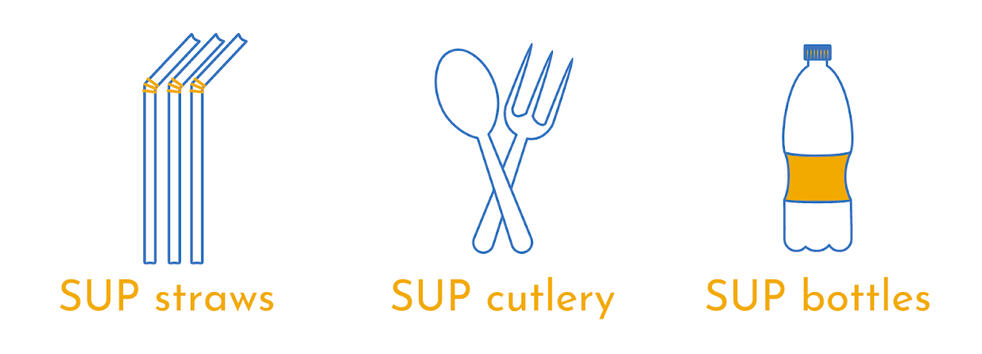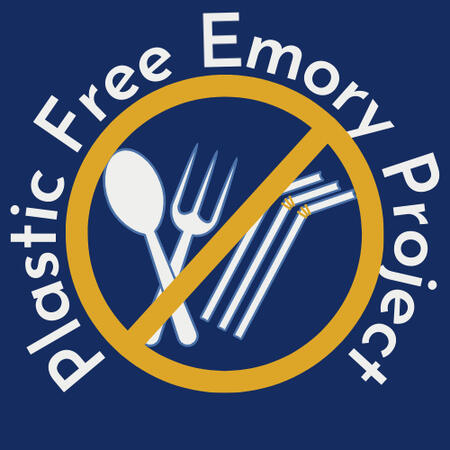plastic free
Emory
Welcome!
Welcome to the Plastic Free Emory Website!!We are a student-led initiative dedicated to tack SUPs (single-use plastics) on Emory's Atlanta & Oxford campuses.Using a combination of:
- outreach
- education
- policy changes
and. . .
- collaborationWe can create a plastic-free campus. Apply to our taskforce today or be a part of our general body to help us move towards our goal!
Welcome to the Plastic Free Emory Website!!We are a student-led initiative dedicated to tack SUPs (single-use plastics) on Emory's Atlanta & Oxford campuses.Using a combination of:
- outreach
- education
- policy changes
and. . .
- collaborationWe can create a plastic-free campus. Apply to our taskforce today or be a part of our general body to help us move towards our goal!
About Us
Hello! Welcome to the Plastic Free Emory Project! We are a student-led initiative dedicated to tackling single-use plastic on Emory & Oxford campuses through outreach, education, policy changes, and most importantly a “Break Free From Plastic” pledge to be signed by President Fenves that would phase out unnecessary single-use plastic by 2026.**IMPORTANT DEFINITIONS: **
Single-use plastic (SUP) disposable: a plastic product with an intended lifespan of one use, i.e. one meal, one drink, or disposed of within 24 hours. Ex:

Non-essential: disposable, not absolutely necessary items with readily available alternatives. These can be replaced with reusable containers, compostable containers, bulk-serve options, or take back programs – all while taking into account the needs of those with differing abilities and restrictions that require use of such items.Accessibility: Accessibility should be at the forefront of food-service vendors efforts when working towards restricting single-use disposable plastic. For example, when eliminating single-use plastic straws, dining facilities and vendors should make it clear that they still provide single-use plastic straws upon request (and without question), whenever anyone wants or needs one. Plastic straws are necessary for some individuals with physical disabilities, and should be accessible without question or judgement. Learn more.WHY?
Single-use plastics are flawed by design: they use a material made to last forever but are designed to be thrown away and are sometimes only used for a few moments before polluting the Earth for years to come.
- We are producing over 380 million tons of plastic every year, and some reports indicate that up to 50% of that is for single-use purposes.
- Unfortunately only 2% of all plastic is recycled so even if we could increase our recycling rates, we would never be able to keep up with the amount of plastic generated
- WE NEED TO FOCUS ON REDUCTION
- The Environmental Protection Agency classifies “Source Reduction” (i.e., elimination of the purchase and distribution of disposable plastics) as the highest impact form of pollution prevention
- So far, 13 universities have signed similar pledges and over 35 have active student-led campaigns to reduce single-use plastic on college campusesSingle-use plastics are known to be a:
- Source of greenhouse gas emissions
- Perpetuate environmental injustices experienced mostly by marginalized communities who live close to landfills and factories where plastics are made
- Threaten wildlife and overall environmental health of our communities and ecosystemsHOW?
OUTREACH: We can’t reduce unnecessary single-use plastic on campus without making institutional and individual choices that align with this goal. We want to ensure that everyone in the Emory Community feels heard and supported by us through various educational events, social media, and a survey that aims to gauge the Emory community’s attitudes toward single-use plastics and Emory’s current waste management system.
You can follow us on instagram at @plasticfreeemory and Facebook at “Plastic Free Emory.” So far, we have over 300 followers where we post educational infographics, takeovers, events, and more!EDUCATION: Unnecessary single-use plastic is an extremely intersectional issue. We believe it is important to educate people on the various effects of plastic pollution on the environment and human health.
“In the end, we will conserve only what we love; we will love only what we understand and we will understand only what we are taught.” (Baba Dioum)
-We host educational plastic events (Stay Tuned!)
-We post educational infographics on social mediaPOLICY CHANGES: We know that institutional changes are key to reducing unnecessary single-use plastic at Emory. To do this, we use data from our survey and case studies to promote policy changes on campus.
- Emory Undergraduate Student Government Association passed Resolution 54sl4 - Break Free from Plastic Resolution urging the Student Body Government to support a Break Free from Plastic pledge that would phase out unnecessary single-use plastic items on campus.
- Oxford Student Government Association passed Resolution 21OxR07-Plastic Free Emory Project
- Graduate Student Government Association passed Resolution O2fO321: Plastic Free Emory
- Bachelor of Business Administration Council passed Resolution to Support a “Break Free from Plastic” Pledge
- University Senate passed the "Resolution of the University Senate Concerning the Proposed Emory "Break Free From Plastic Pledge"BREAK FREE FROM PLASTIC PLEDGE: A campus pledge inspired by Post Landfill Action Network’s Toolkit which guides colleges and universities toward single-use plastic elimination. Many academic institutions nationwide have signed similar pledges, enacted stringent purchasing guidelines, phased-out plastic bags and food service items in retail and dining locations, and committed to single-use plastic elimination by 2025.However, the Break Free From Plastic Pledge is not a one-size-fits-all solution and we have created a pledge that aligns with Emory’s goals and fits within Emory’s capabilities.
By 2025 our pledge will:
- Establish a “Plastic Free Task Force” to engage stakeholders to enact this Pledge
- Implement a year-by-year SUP reduction strategy
- Continue to use viable alternatives and implement purchasing guidelines to eliminate the procurement of unnecessary SUP in the future
- Further invest in education, resources, and infrastructure to reduce SUP use on individual and institutional levels
- Increase effort to eliminate plastic bags, plastic straws, and polystyrene in accordance with Atlanta's Ordinance 19-O-1418(To be signed by President Fenves)Plastic is ingrained in our everyday lives, and to break the harmful cycle, local policies, campus policies, administrators, faculty, staff and students must all come together to “Break Free From Plastic.”WANT TO SHOW YOUR SUPPORT?
If you are a part of a club/organization/office that supports our Break Free From Plastic Pledge please sign HEREDO YOU WANT TO JOIN OUR PLASTIC FREE TASK FORCE
Click the button below to get more information on how our team works
JOIN THE PLASTIC FREE TASK FORCE
Welcome to the Plastic Free Emory Project! We are excited that you’re interested to join our team! Here is some information about us:We are looking for motivated advocates to join our Plastic Free Task Force and help us enact our "Break Free From Plastic" pledge to phase out unnecessary single-use plastic on Emory and Oxford's campuses. Our goal will only be successful through collaboration from folks with different academic majors, skills, knowledge, and backgrounds.ROLES AND POSITIONS:
Please click here for job descriptions & time commitments.Join us in the movement to “Break Free From Plastic” which isn’t only happening at Emory, but is a national movement in which 17 universities have signed similar pledges and over 60 have active student-led campaigns to reduce single-use plastic on their campuses.Contact [email protected] if you have any questions, concerns, or suggestions!
